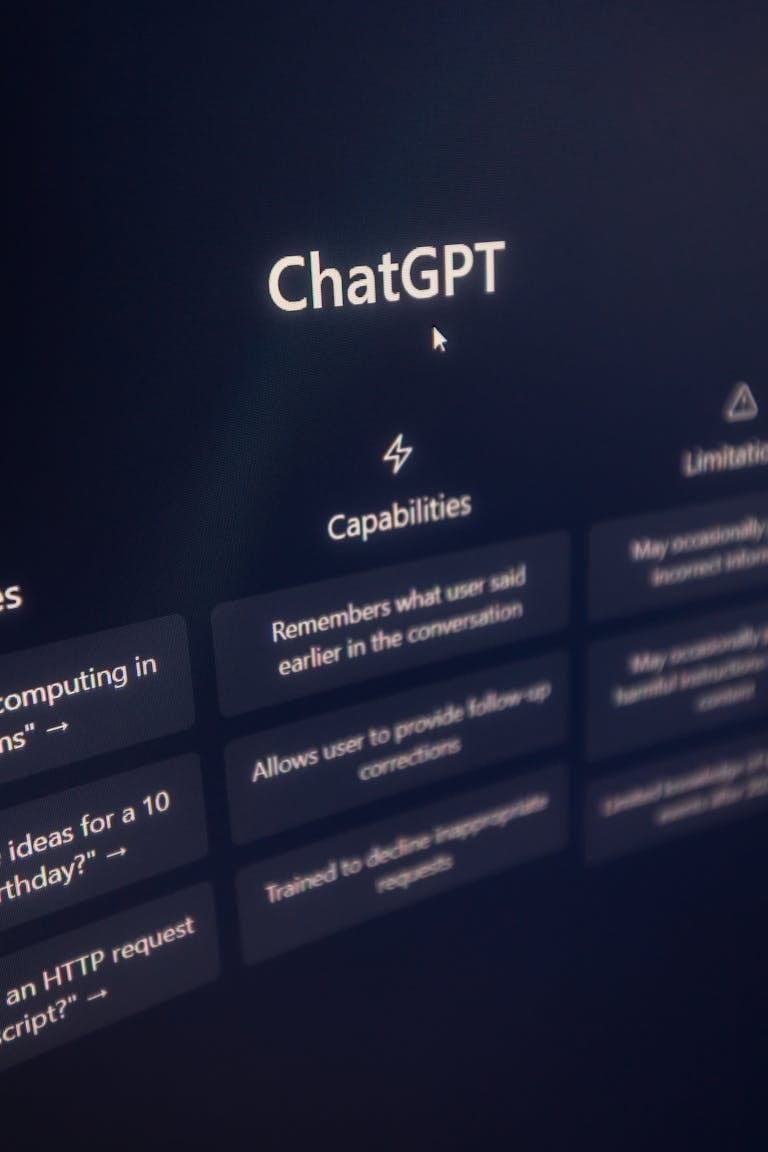
A data-driven look at how artificial intelligence will transform business, healthcare, education, and society in the coming year

Introduction: The AI Landscape in 2025
The artificial intelligence landscape is evolving at a remarkable pace. As we move into 2025, we stand at an inflection point where AI technologies are transitioning from experimental phases to mainstream implementation across industries. Based on predictions from leading researchers, industry analysts, and technology executives, this article examines the key AI trends expected to shape 2025.
Key Trend #1: The Rise of AI Agents
The most significant AI development for 2025 will be the widespread adoption of autonomous AI agents – systems that can perform actions independently on behalf of users. According to experts, these AI agents will move beyond simple chatbots to become systems that can act with increasing autonomy.
OpenAI’s CFO Sarah Friar predicts that “people are going to be surprised at how fast this technology comes at us,” with their recent o1 model marking just the beginning of what will be possible with step-by-step reasoning approaches that enable more autonomous capabilities. AI futurist Ray Kurzweil notes that 2025 will see “a shift from chatbots and image generators toward ‘agentic’ systems that can act autonomously to complete tasks” rather than just answering questions.
Research from Deloitte forecasts that by 2025, 25% of enterprises using generative AI will deploy AI agents, growing to 50% by 2027. Gartner predicts that by 2028, at least 15% of day-to-day work decisions will be made autonomously through agentic AI.
These AI agents will increasingly work in collaborative systems. Stanford researchers predict “a significant shift from relying on individual AI models to using systems where multiple AI agents of diverse expertise work together,” resembling virtual teams where specialized AI assistants handle different aspects of complex tasks.
Key Trend #2: AI in Healthcare Transformations
Healthcare represents one of the sectors where AI will have the most profound impact in 2025. The market for AI in healthcare could grow to $17.2 billion by 2032, with 2025 marking a transition from potential to practical applications.
Key healthcare AI trends for 2025 include:
- Clinical Integration: AI tools will become more deeply embedded in clinical workflows, with ambient listening technologies allowing clinicians to focus on patients while AI handles documentation. Healthcare leaders are prioritizing tools that provide clear ROI in clinical efficiency and reduced burnout.
- Diagnostic Advancements: AI will significantly improve diagnostic capabilities, particularly in medical imaging. Dr. Bhargava Reddy, Chief Business Officer of Oncology at Qure.ai, predicts AI will help close the lung cancer screening gap, which currently reaches only 5.8% of eligible patients.
- Personalized Medicine: AI-driven personalization will accelerate in 2025, with algorithms analyzing patient data to tailor treatment plans based on individual health profiles, genetics, and lifestyle factors.
- Administrative Efficiency: Healthcare organizations will adopt more sophisticated AI for administrative tasks, with retrieval-augmented generation (RAG) systems combining traditional database capabilities with LLMs to produce more accurate answers for staff.
Key Trend #3: Education Transformation Through AI
In education, 2025 will witness significant shifts in how AI is utilized both for teaching and administrative functions.
According to Georgia State University’s AI chatbot pilot program, AI-powered agents operating as digital mentors can reduce summer melt (the phenomenon where students accepted to college fail to enroll) by 21%. This success suggests that in 2025, such agents will become more prevalent as personalized tutors that adapt to individual learning styles.
In higher education, online program leaders will begin “unlocking the vast potential of generative AI, integrating it more deeply into the instructional design process” to amplify faculty and instructional designer capabilities, according to forecasts from education technology experts.
The transition from experimental to practical implementation in education will accelerate as 77% of K-12 teachers acknowledge AI’s utility, though adoption remains cautious with only 56% actively using the technology according to Carnegie Learning’s research.
Key Trend #4: Enterprise AI and ROI Focus
In 2025, businesses will shift from AI experimentation to implementation with a heightened focus on measurable returns. According to research by McKinsey, while over three-quarters of respondents say their organizations use AI in at least one business function, most are still working to capture significant economic value.
Enterprise AI in 2025 will be characterized by:
- Precision AI Over General Models: Organizations will move away from general-purpose large language models toward tailored, domain-specific AI solutions. As Cameron Wasilewsky from Snowflake explains, “The biggest advancements in AI impacting enterprises by 2025 will stem from industry-aligned, domain-specific models designed to address specific, high-value business challenges.”
- ROI-Driven Implementation: A more measured approach to AI investment will dominate as businesses focus on quantifiable returns. As one industry analyst states: “2025 will usher in a more measured approach to AI investment, as organisations will be increasingly focused on quantifiable ROI.” Cost efficiency will drive strategic AI adoption decisions.
- Integration of Human-AI Workflows: Companies will redesign workflows to optimize human-AI collaboration rather than just adding AI tools to existing processes. Larger organizations are leading the way, being more than twice as likely as smaller firms to establish dedicated teams driving AI adoption.
Key Trend #5: The Ethical and Regulatory Landscape
As AI becomes more deeply embedded in critical systems, the ethical and regulatory landscape will continue to evolve in 2025.
The EU AI Act will enter its implementation phase, with global companies likely standardizing their AI practices to comply with these regulations, creating de facto global standards similar to what occurred with GDPR. In the U.S., while federal regulation may move slowly, individual states will likely act independently to address AI governance.
Public perception of AI will remain mixed, with significant gaps between expert and public opinions. According to Pew Research, 56% of AI experts surveyed say AI will have a very or somewhat positive impact on the United States over the next 20 years, compared with only 17% among the general public.
Companies will increasingly establish formal AI governance structures, with larger organizations leading the way. More than half of both U.S. adults (55%) and AI experts (57%) want more control over how AI is used in their lives, and both groups worry more about government regulation being too lax than overly excessive.
Conclusion: Bridging the Expectations-Reality Gap
While 2025 will bring significant advancements in AI capabilities and adoption, it’s important to distinguish between the hype and reality. IBM’s research indicates that while 99% of developers surveyed are exploring or developing AI agents, the full autonomous potential remains nascent, with most deployments requiring human oversight.
The year will be marked by the practical implementation of AI technologies that have shown clear value, with a focus on measurable outcomes rather than experimentation. As organizations gain more experience with AI implementation, the gap between expectations and reality will narrow, leading to more sophisticated and effective AI deployments across industries.
The companies that thrive in this environment will be those that balance innovation with pragmatic approaches to AI implementation, focusing on areas where AI can deliver tangible business value while navigating the ethical and regulatory considerations that come with increasingly autonomous systems.
Sources:
- Time Magazine, “5 Predictions for AI in 2025,” January 2025
- Stanford Institute for Human-Centered AI, “Predictions for AI in 2025,” 2025
- McKinsey & Company, “The State of AI: How Organizations are Rewiring to Capture Value,” March 2025
- Reuters, “Autonomous Agents and Profitability to Dominate AI Agenda in 2025,” December 2024
- HIT Consultant, “25 Executive Healthcare AI Predictions & Trends to Watch in 2025,” January 2025
- Inside Higher Ed, “Human Predictions for AI in Higher Education in 2025,” January 2025
- PwC, “2025 AI Business Predictions,” 2025
- IBM, “AI Agents in 2025: Expectations vs. Reality,” 2025
- Pew Research Center, “How the US Public and AI Experts View Artificial Intelligence,” April 2025
- Gartner, “AI in Healthcare Trends to Watch,” 2025
- HealthTech Magazine, “2025 AI Trends in Healthcare,” January 2025
- Morgan Stanley, “5 AI Trends Shaping Innovation and ROI in 2025,” 2025






